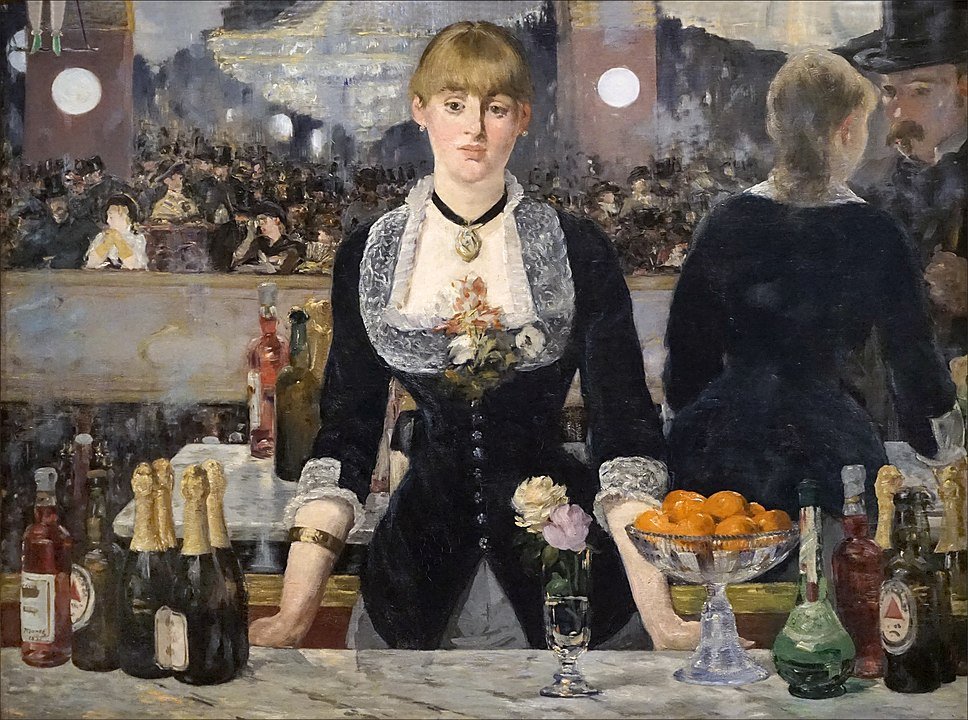The Light in Your Eyes Has Gone Out
Marcia Zwilling
Word Count 914
Behind a long, mahogany bar, colorful liquor bottles reflected off an antique mirror tarnished from over a century of cigarette smoke. The year, 1896, was meticulously carved into the corner of the bar. I traced the date with my finger, wondering how many others had sat on this very same stool mesmerized by the silhouette of amber-colored bottles crowded on shelves waiting to be summoned.
Dozens of photographs lined the walls, a cemetery of buried memories memorializing the past. Celebrities, who once frequented Woodstock’s infamous Bear Bar, kept silent watch from another era, in a room once filled with windows and light. One bad remodeling decision had replaced the windows with a mirror that extended the full length of the bar, transforming the room into a dark chamber of antiquity.
I caught a glimpse of myself in the mirror. I no longer recognized the person staring back. The cheerful smile was gone, replaced by thin, sagging lips that gave the illusion of a perpetually sad woman. My radiant skin was a sallow grey from drinking and chain smoking. The light, in what my friends once called dazzling brown eyes, had faded. All that remained was a hollow, vacant stare, and a sadness that was hard to define.
I ordered another glass of bourbon, ground my Camel non-filter into an ashtray and promptly lit another. I didn’t like that image in the mirror so I closed my eyes to stop her judgemental glare. As I longed for the past, I found myself transported back to 1972. I was young and attractive again; the bar was crowded and alive with laughter. Every stool was occupied by friends exchanging stories against the din of blended conversations. The Band’s “The Night they Drove Old Dixie Down,” was playing softly in the background, forever marrying this moment in time with the soundtrack to my past.
At the height of his career, Rick Danko, the Band’s bass player, was playfully whispering into the ear of a pretty woman with his signature graveled voice, hoping to get lucky. At the end of the bar, the legendary harmonica player, Paul Butterfield, known for his caustic personality and sharp wit, stared down at his beer with absolute resolve, as if saying to an old lover, I just can’t quit you.
Seated next to me was Mason Hoffenburg. The eccentric author, a splitting image of actor Peter Lorre, wrapped himself in a long wool trench coat that he rarely took off. He kept close watch on the door in case he had to make a quick exit to avoid one of his many ex-wives. With a slight lisp, acerbic wit, and perfect comedic timing, he explained why he always had three martinis lined up in front of him. As he watched the bartender pouring drinks as fast as we could down them, Mason was pleased that he would never have to wait for his next drink.
The regulars rarely left until last call. They spent their evenings sharing stories with strangers they called friends, but the only thing they really had in common was their love of alcohol. I kept my eyes shut, not wanting to leave this wondrous scene from my past. My twenty-year-old self was tossing her head back in joyous laughter, her long chestnut hair—still thick and lustrous—outlined perfectly flawless skin. Heads turned whenever I walked into a room. When had I become invisible?
“The light has gone out in your eyes.” The voice startled me back to the present vision in the mirror. Those once youthful eyes were now surrounded by dark shadows. I noticed how the bottles of liquor were framing my face in the mirror, like some hideous portrait of the truth.
I frequented this bar nightly; not even a blizzard could keep me from trudging down the mountain whenever it was too icy to drive. Most nights, I’d return home and collapse on my bed, never bothering to get undressed. But something was different about this cold December night. I drank more than enough to pass out, yet I could not fall asleep or silence that voice in my head. That haunting image in the barroom mirror was pointing at me, cackling like some hideous demon, “The light has gone out in your eyes!” It was the last thing my best friend had said to me as I left her standing alone in a Los Angeles restaurant. A decade later, her words were haunting me.
I sat up and turned on the lamp, wondering if the image in the mirror was trying to reach out in desperation? I had aged. I had given up on my dreams. But I had also gained wisdom and experience. Tears began to stream down my face as I came to the realization that the demon in the mirror was alcohol. Those sparkling bottles of booze had taken everything from me.
The next morning would be my last hangover. As I poured a cup of strong black coffee, I realized those wonderful memories from my past were an illusion, replaced by the harsh reality of the truth. They were all dead. Alcohol and drugs had taken each one of them.
But I was alive and still had the power to recreate myself. It wasn't too late for a new beginning. It was time for the light to shine in my eyes again.
—
Marcia's eclectic career as a writer spans several decades. Starting as a songwriter in Woodstock, New York, she signed with United Artists Music, and co-wrote "Once in a Lifetime," recorded by Bonnie Raitt. Moving to Los Angeles, Marcia segued into television to develop projects with Steve Martin at his company 40 Share Productions, at Universal Studios. Several years later, she was hired by Lorimar as Vice President of Current Programming, where she worked creatively with writers and producers.
